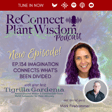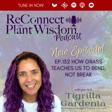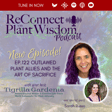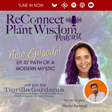
Ep.73 Using Natural and Spiritual Cycles
In this episode, I share with you importance of aligning with natural and spiritual cycles for optimal health and productivity. I emphasize the adaptability of plants to various environments and the need to learn this skill, especially with big world changes like climate change.
I also share personal insights about my daily rhythm, yearly review process, and the significance of understanding and utilizing natural cycles for better management of energy and activities.
I am curious, what are your natural rhythms. spiritual cycles, and societal cycles that affect you most?
Topics Covered about cycles
➡️ Natural cycles for wellbeing
➡️ Adapting to Climate and other world rhythms
➡️ Embracing cultural and societal rhythms
➡️ Using cycles for future planning
Resources Mentioned
🌱 More about Damanhur Spiritual Community
🌱 What's Your Ideal Naturally Conscious Path
🌱 Ep.38 How to Best Use the Epagomenal Days
🌱 Personalized mentorship with me and the Plants
☝🏽ReConnect with Plant Wisdom podcast Ancient and modern knowledge from biology to spirituality about the wondrous ways plants help you lead a Naturally Conscious life. Subscribe on your favorite podcast player.
// Let's work together: book a Discovery Call
// EcoConscious Business Partners: Learn from the Shift Network Shop Here
// Opening and Closing music by Steve Sciulli and Poinsettia from The Singing Life of Plants
// Socialize with me Facebook | Instagram | LinkedIn | Youtube



















